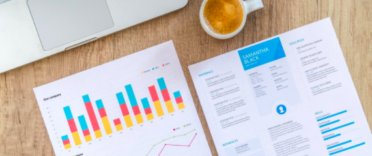 Reader Question: Where is the best place to invest £20,000
Reader Question: Where is the best place to invest £20,000
I have up to £20k which I plan to invest. I have not taken any ISA allowance this financial year. Cash ISA seems too low, and while I’ve considered stocks and shares ISA these don't look great when costs are included (1.5% pa) and I'm not a big risk taker. I’m planning on investing £10,000 for 5 years or more and £10k with perhaps less commitment. Any thoughts would be welcome.
Successful armchair investing in minutes - FIND OUT MORE
Darren’s response:
Obviously I can only give you generic information here and I suggest that you seek professional advice from an independent financial adviser.
I note that you say £10,000 to invest for a longer term & a similar amount for savings for more accessible funds. In this answer I will use the terms Investments & Savings, which mean different things:
- Investments are something that you buy & own (e.g. gold coins, paintings, property, shares).
- Savings are accounts where your money sits as cash & the bank or building society add interest in cash.
Savings
We'll start with the Savings part. You've mentioned ISAs and that is always the best place to start. Cash ISAs are simply savings accounts, but can offer a higher interest rate than "normal" savings accounts (although at todays rates it is hardly noticeable I'll agree)
They have the added bonus that the interest isn't taxed as normal savings accounts are, so this helps increase the differential.
Regarding the longer term investment this depends on what you mean by long term. If it is 2 to 4 years then anything other than cash would be unsuitable. You might want to consider a fixed rate savings bond. Again these pay similar to savings accounts, are taxable, and you suffer a penalty for access. You can find the current best savings rates here.
Investments
If your investment term is 5 years or more then you might want to consider an Investment ISA (also known as a Stocks and Shares ISA). As with cash ISAs any gains are free of taxation. In addition you could put the whole £10,000 in immediately.
The actual ISA allowance is £15,000 and up to 100% of the allowance can be used for investment. Or it can be split into Cash ISA & Investment ISA.
An extreme example would be that you put £5 in a Cash ISA & £14,995 in an Investment ISA. That uses your whole allowance for the year so you cannot put anything else in either part.
Charges
I note your concern about charges, but that's just part of any investment. The people looking after the assets you buy are not going to do that for nothing.
It's the same with your savings. The bank offers 1.5% interest because they are taking their charges (or profit) before deciding how much they can give you.
So an investment can cost anything in charges, but at least they are not hidden. 1.5% or so per annum is a reasonable charge but ultimately depends on what you invest in. The national press often obsess over charges and while it is important to keep them as low as possible, it is net return (after charges) which you should focus on. However, If you want to drive the costs lower then you can of course run the money yourself which I will come on to later.
Many investments also cost you between 1% & 4% up front, many with a minimum fee so larger amounts are more cost effective, but again this can be minimized. There are lots of different investments, something to suit every individual. So let's assume that a financial adviser agrees on the type of investment that suits you, as a low risk taker
Let's then assume the initial charge (including any fee for financial advice) in the worst likely case of 4%. This can be paid separately by you, or taken from the investment. Let's assume the fund manager charges an annual charge of 1.3%, taken from the fund as a fraction of 1% daily. This charge is known as the AMC (Annual Management charge)
Year 1
- So in year 1 you will have had 5.3% in charges.
- Let's assume growth of only 5% per annum is being achieved by the investment manager (obviously there is no guarantee that you will receive this, particularly from low risk investments)
- After 12 months you've gained nothing, in fact you are slightly down on the initial investment.
No doubt the Cash option looks better at this stage.
Year 2
- In year 2 you only have the 1.3% AMC charge, and let's assume the fund maintains 5% growth.
Your charges to date are 6.6% and you've gained 10%, so have a net gain of 3.4%, an average of 1.7% per annum
Year 3
- Year 3, 1.3% AMC, and again we assume 5% growth.
Your total charges of 7.9% have produced 15%, giving a net of 7.1%, or 2.36% average per annum
Year 4
- Year 4, 1.3% AMC & 5%
Total charges 9.2% to achieve 20%, so net 10.8% or 2.77% per annum
Year 5
- Year 5, 1.3% AMC & 5% growth
So charges now total 10.5% to gain 25%, net 14.5% or 2.9% per annum. The longer this goes on the higher the net return, hence the reason we say 5 years or more for an investment.
As you can see it CAN be worth paying these charges in order to benefit from the expertise of a financial adviser and the fund manager skills. And the exact detail of any charges must be set out to in writing before you make a commitment to invest. If you want to go it alone then you can and reduce costs but this is only really suitable for those with sufficient investment knowledge.
Running your own money (DIY investing)
Of course you could invest your own money yourself which would avoid the cost of paying for advice. MoneytotheMasses.com offer a FREE short series of emails which teaches you the secrets of successful DIY investing.
Alternatively there are a couple of companies who can manage stocks and shares ISAs on a discretionary basis for a relatively low fee. One of the few companies that does is Hargreaves Lansdown. They run a selection of three portfolios (Adventurous Growth, Balanced Growth and Cautious Growth) which are tailor-made based on their in-house investment research. They have produced downloadable factsheets which show how they run each portfolio as well as the historic returns and it will help you decide which is appropriate for you. Hargreaves Lansdown manages the underlying investment selection for you, meaning that you don't have to do anything. Hargreaves Lansdown has won numerous industry awards for their investment advice and customer service.
For more information on investing then read the following articles.
I hope that helps
Financial Planning Designer
If you would like to contact Darren for help with your financial affairs then click here.
The material in any email, the Money to the Masses website, associated pages / channels / accounts and any other correspondence are for general information only and do not constitute investment, tax, legal or other form of advice. You should not rely on this information to make (or refrain from making) any decisions. Always obtain independent, professional advice for your own particular situation. See full Terms & Conditions and Privacy Policy





